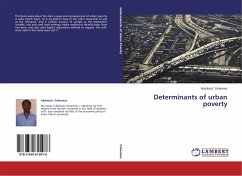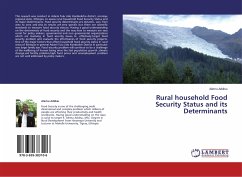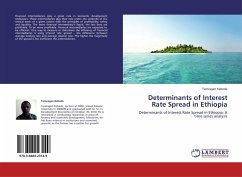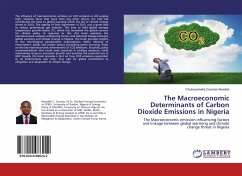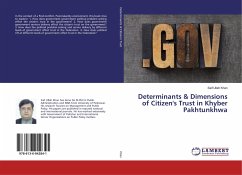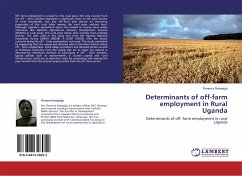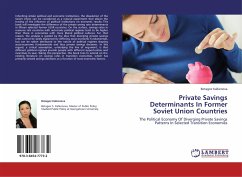
Private Savings Determinants In Former Soviet Union Countries
The Political Economy Of Diverging Private Savings Patterns In Selected Transition Economies
Versandkostenfrei!
Versandfertig in 6-10 Tagen
32,99 €
inkl. MwSt.

PAYBACK Punkte
16 °P sammeln!
Inheriting similar political and economic institutions, the dissolution of the Soviet Union can be considered as a natural experiment that allows the tracing of the influence of political institutions on economic results. This book will investigate the difference of the private saving rate determinants in fifteen selected former USSR countries. On the surface, savings rates in resource rich countries with autocratic political regimes tend to be higher than those in economies with more liberal political cultures. For that reason, the analysis is guided by the idea that diverging private savings...
Inheriting similar political and economic institutions, the dissolution of the Soviet Union can be considered as a natural experiment that allows the tracing of the influence of political institutions on economic results. This book will investigate the difference of the private saving rate determinants in fifteen selected former USSR countries. On the surface, savings rates in resource rich countries with autocratic political regimes tend to be higher than those in economies with more liberal political cultures. For that reason, the analysis is guided by the idea that diverging private savings rates cannot be solely explained by differing socio-economic fundamentals, but can be rather attributed to the nature of political regimes shaping socio-economic fundamentals and thus private savings decisions. In this regard, a critical assumption, underlying the line of argument, is that different political regimes provide people with different opportunities and incentives to save. Takingthis perspective, this book tries to extend on the existing literature on savings rates in transition economies, which has primarily viewed savings decisions as a function of socio-economic factors.



